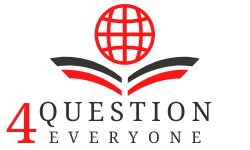you are free and that is why you are lost Answer 1 We need to bind ourselves to specific beliefs, ideologies or philosophies, etc., in order to create an identity for ourselves. If you are floating absolutely free without anchoring yourself to anything fixed or anchored, then you have no fixed identity….. not having a fixed identity means people cannot put you down. one way or another…. means you don’t belong…it’s the same as being lost!! Answer 2 I think Kafka meant: since you are a free person, a free individual, you can do whatever you want, creatively, artistically, spiritually, etc. With so many options, it’s hard to get lost in it all. You’re lost, I think it refers to how people “lose” their way of life, or deviate from their own beliefs, it doesn’t literally mean lost, like lost in the woods. The reason you are lost is because you have so many options for what you can do in this wonderful world. Imagine the reverse, if you weren’t free, you wouldn’t be lost, you wouldn’t control anything. Someone else, be it a government, religion, parents, etc., would have control over your existence and the future of your life. What I believe he wanted this quote to do is evoke a sense of passion in his reader. The quote reminds us that there are people who are not free and who cannot do what they want. Essentially he is saying that being lost is a privilege, not to be taken for granted or wasted. It is important for a person to completely say “yes” to life, except that when we do, we can no longer ignore our individuality and our inherent loneliness. To be autonomous means to have no authority superior to oneself and therefore no guide (you are lost). Thus, the ultimate responsibility for your life belongs to you, which is the very definition of freedom. Ultimately, it’s a poignant statement about the hero’s quest (as Joseph Campbell explains), in order to bring something new into existence (via revelation or discovery), the hero must break with social norms. , because while protecting it, they also bind it with a convention that obliges it to act within this paradigm. So the hero is often seen for a time as an outcast or an outcast because he rises above the hive mentality, and even when he returns he is so profoundly changed by the experience that he can never fully identify with those to whom it brings. revelation/discovery. for. So if he is liberated in a very real sense, he is also eternally separated from the rest of humanity. Answer 41. This is Frantz Kafka2. What story does it come from? Looks like it’s from the penal colony, maybe? Or Judgment?3. Kafka was a master at depicting oppressive and unassailable bureaucracy in narrative form. From what I know of him in general, he parodies the broken promises of enlightenment and modern industrialism. Living in the early 1900s (industry, urbanization, world war, corporatization), he had a knack for reinforcing the oppressive nature of social, cultural, and political norms, even as those in power constantly spoke of freedom, freedom, and prosperity. . tend to see Kafka as reactionary nonsense. Anti-capitalist (or less-than-capitalist) readers tend to see him as a key, if not overlooked, figure in blaming the Enlightenment and modernism for their limitations and failures. saying: We preach freedom, but we also know that you can’t handle freedom, so we’ll just tell you what to do.[edit]Pay no attention to the child’s response. It’s very American to assume that identity is, or should be, fixed, and that without that fixed identity, you are “lost.” Culture and identity ALWAYS change. Kafka had a hard time dealing with this in the early 1900s when things were really picking up speed, but that’s not what he meant. Its main themes are alienation and bureaucracy, not “fixed identity”. , after learning all this, it is up to our own judgment and decision to follow or we can create our own path which can be much better and true for others to study or be their guide in search of true happiness from this world life. – where the end of the road is near. Source(s): in search of TRUE HAPPINESS. Identity is easy, YOU are YOURSELF Answer 6 If we can make our own choices, we are doomed to lose ourselves. We like to venture off the beaten path, and sometimes the unfamiliar path leads nowhere. Freedom has a price to pay, you make more mistakes, but you also find more meaning in your life. Answer 7 Kafka needs a crazy GPS instead of a clown. we are free and therefore, seemingly without direction or purpose, we are lost. .bcoz even i can say big quotes like it’s my time 1..
2..3 “you think I’m a fool because I say they ꜱᴜcκ so you didn’t listen to me” Answer 10 Did he say that? you still have to pay for what you buy! 0! Good luck!
